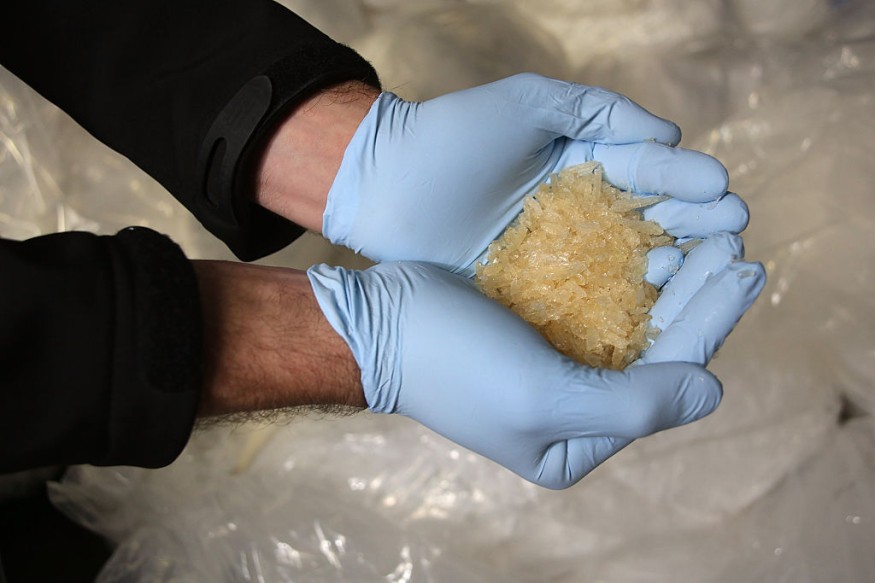U.S.-Mexico Efforts Against Mexican Drug Cartels Have Unraveled: DEA

A top official of the Drug Enforcement Administration (DEA) said that U.S.-Mexico efforts against Mexican drug cartels fell through after coordination between law enforcement agencies and militaries in the two countries fizzled out.
"We're willing to share [intelligence] with our counterparts in Mexico, but they themselves are too afraid to even engage with us because of repercussions from their own government if they get caught working with DEA," Matthew Donahue, the DEA's deputy chief of operations, told NPR.
The collapse of joint efforts occurred at a time when Mexican drug cartels manufactured large quantities of methamphetamines and fentanyl in illegal labs in Mexico.
These drugs are being smuggled into U.S. communities, which were responsible for the hike of overdose deaths that claimed over 90,000 lives last year.
Donahue described the situation as a national security crisis, noting that the Mexican drug cartels do not fear law enforcement or the military in Mexico.
He said the collaboration between the U.S. and Mexico deteriorated over the past two years when the DEA started to experience a "lack of engagement" from Mexican agencies.
READ NEXT: Mexican Drug Cartels Show Off Lavish Lifestyle in TikTok to Recruit New Members
Efforts Bogged Down
Experts said that the U.S.-Mexico relation had a great blow to their partnership when U.S. agents in California arrested retired Gen. and former Mexican Defense Minister Salvador Cienfuegos Zepeda last October.
The U.S. agents had claimed that Cienfuegos was working for one of Mexico's deadliest drug cartels, which is the H2. Former Attorney General William Barr has dropped all charges and released Cienfuegos after pressure from Mexico.
Experts said despite the charges being dropped, the diplomatic damage was done, according to a KPBS report.
An analyst with the International Crisis Group in Mexico City, Falko Ernst, said that joint operations between the two countries have almost been paralyzed.
"So what the U.S. had built up in terms of good relationships with parts of the Mexican state have pretty much been gone," Ernst said in the NPR report.
Even before Cienfuegos's arrest, there was already a high level of suspicion between the two countries. Steven Dudley said the U.S. had captured many drug trafficking operational heads and midlevel men cooperating with special units in the police, marines, and the attorney general's office in Mexico.
Dudley is an expert on drug interdiction with a think tank called InSight Crime. In light of Cienfuegos' arrest, Mexican lawmakers approved a measure restricting U.S. drug operations inside Mexico.
Acting head of the White House Office of National Drug Control Policy Regina LaBelle earlier told NPR that efforts against Mexican drug cartels would be on the agenda soon for talks with Mexico.
LaBelle noted that there was still ongoing cooperation between the two countries, but it will soon be the subject of negotiations.
Efforts Against Mexican Drug Cartels
In 2019, nine U.S. citizens, including children, were killed in an attack on a highway linking the Mexican border states of Chihuahua and Sonora.
Former President Donald Trump then said that this was a time for Mexico and the U.S. to "wage war" on the Mexican drug cartels and eliminate them.
Mexican President Andres Manuel Lopez Obrador replied to Trump, saying that he was going to give him all the help needed to investigate the attack, according to a 2019 NBC News report.
In 2007, former President George W. Bush and former Mexican President Felipe Calderon had forged a partnership to address drug violence, corruption, and border security issues.
The measure was known as the Mérida Initiative, and it continued under other presidents of the U.S. and Mexico.
READ MORE: Notorious Mexican Cartel Leader Using Children as Shields in Gang War
WATCH: Full Frame: Drug Trafficking Violence in Mexico - From CGTN America
Subscribe to Latin Post!
Sign up for our free newsletter for the Latest coverage!
© 2026 Latin Post. All rights reserved. Do not reproduce without permission.














